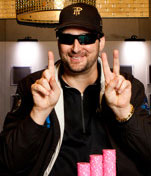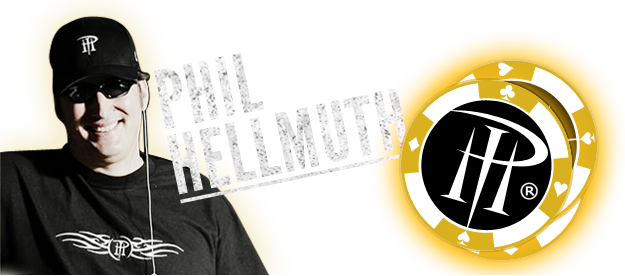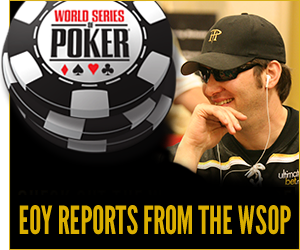-
Make a Stand
While playing in the $25,000 buy-in World Poker Tour (WPT) Championship event recently, I chose a key occasion to stand firm. Making a stand is important. There are times when you need to say, “I think I have my opponent beat, and now’s the time to make a crucial call, or a perfectly timed raise.”
On Day 3, I started play with a pathetically low $40,000 in chips, at a time when the average stack in the tournament was more than $200,000. Now, one hour into Day 3, I was up to around $100,000, and feeling good about my improved position. With the blinds at $1,500-$3,000, I opened for $9,000 with 7-7. Player A, who was sitting directly to my left, called the $9,000 and raised it up another $20,000. Normally, I would have folded at that point, but I had just raised it up twice with K-J, and went on to win both pots in a showdown. So I thought Player A thought I had another hand like K-J. And after reading him for a bit, I didn’t think he was particularly strong. I thought he had a hand that could beat K-J, but I didn’t give him credit for having an overpair, like pocket queens, so I called the $20,000 raise.
The flop was Q-Q-9, and I checked. Player A bet out $40,000, and now something didn’t seem right. He had seemed so weak to me, and my mind kept saying, “You have the best hand.” One question I asked myself at this point was this: you feel weakness here, but could Player A have pocket 10s? Another thought: if I’m wrong and I put all my money into the pot, then I’ll have only two wins in the deck, which would make me a 10-to-1 underdog to win the pot. As I ran through these possibilities and scenarios, I counted my chips and found that I had $68,000. It was all or nothing now. I was either right, and would move way up in chips, or I was wrong, and was about to be eliminated. Finally, with the conviction of a man who felt he was right, I moved all-in!
Player A studied me, and said, “I know you have me beat, but I’m calling you down anyway.” This did not comfort me, since he still may have had me beat, but when he showed A-J, I felt pretty darn good about my hand, my chances and my reading abilities. Still, he could hit an ace, a jack or a nine to win the pot from me. When a four, followed by another four, hit on the last two cards, I had almost $200,000 in chips, and everyone at the table seemed to be a bit in awe about my call. No one at this table was going to try to bluff me after that hand, and that’s exactly what I wanted.
When you make a great stand like this one, there are always fringe benefits, not to mention the fact that you usually win a big pot. First, you know you’re on your game (reading your opponents well), and this boosts your confidence. Second, everyone at the table knows you’re on your game, and you now see them trying to avoid you, which means you can be pretty sure (the next time you play a hand) that no one is trying to bluff you. And finally, your opponents know you’re willing to put it all on the line, which forces them to look at you in a different light. They’re really afraid of you now!
Do I make stands very often? Not enough in the last year or two, that’s for sure. I do think that if you can make a stand once or twice per tournament (or per day), then that’s pretty good. I don’t like putting my whole tournament at risk with a weak hand, but if you want to be a poker champion, then that’s exactly what you need to do –just not too often!
A stand is important because:
A) it boosts your confidence
B) it scares your opponents
C) sometimes you’ve just had enough of someone bluffing you
D) all of the aboveAnswer: D
Related Posts
- The Holiday Game
- Poker for Police Officers
- No ‘Blow-Up’ for Matusow
- Furst Versus Worst
- Cunningham Going for the Gold
- Winning from the Hole
- After-Hours Poker
- Key Hand at European Poker Championships
- Make the Most of It!
- One Tough Poker Game
Recent Posts
- WSOPE 2nd place finish
- Update from this years WSOP 2019
- Happy Holidays! Updated stock at Poker Brat, new book!
- Phil Hellmuth wins historic 15th World Championship!
- Final golden ticket winner coming soon
- Poker Brat – The Phil Hellmuth Jr. Autobiography
- Phil Hellmuth’s “Pokerbrat” – Coming soon to audio book!
- Poker Night in America – Sugar House Casino
- Sugar House w Matt Glantz
- Lost and found

 ™
™








